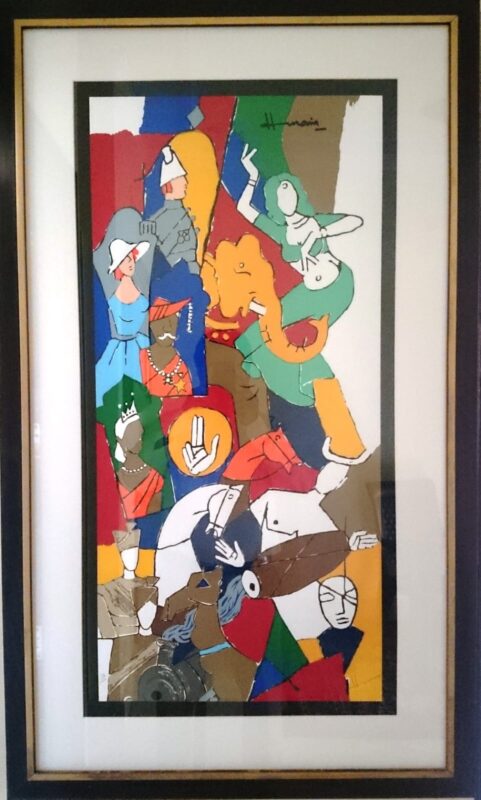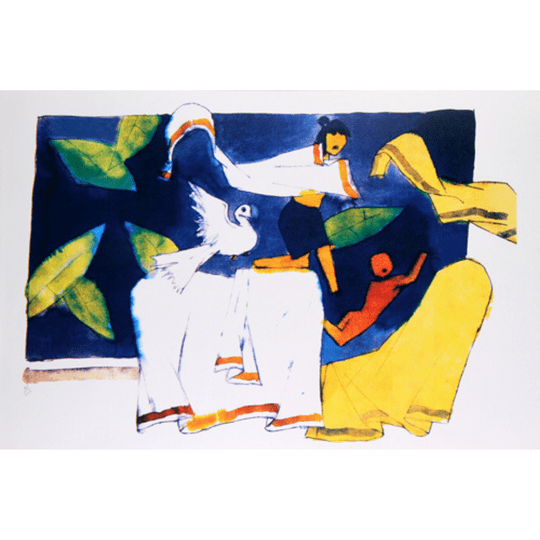M F Husain
Maqbool Fida Husain was born in 1913 in Pandharpur, Maharashtra. A self-taught artist, he came to Mumbai in 1937, determined to become a painter. In 1948, he was invited by F N Souza to join the Progressive Artists ‘ Group.
Husain began his career by painting billboards for feature films and making furniture designs and toys, to earn a living. When took up painting as an art form, however, he returned time and again to his roots, and to themes that blended folk, tribal and mythological art to create vibrantly contemporary, living art forms. His rise as a public figure had as much to do with his style and presentation, as it did with his themes. He depicted the icons of Indian culture, through the ages, seeking to capture the quintessence of his subjects, like Mother Teresa and the characters of epics like the Mahabharata.
Husain’s name has become almost synonymous with modern Indian art, for no single artist has popularized Indian art, within the country or internationally, as Husain has done. His endless quest for his cultural roots and a fearlessly open-minded willingness to absorb diverse influences has made M F Husain one of the most recognizable figures of modern Indian art.
In a career that spanned seven decades, Husain also made feature films, such as Through the Eyes of a Painter, in 1967, which was a Golden Bear Award winner at the Berlin Film Festival, and Gajagamini in 2000. The Government of India honoured him with the Padma Bhushan and the Padma Vibhushan awards, both prestigious civilian awards. Husain passed away in London in 2011.







